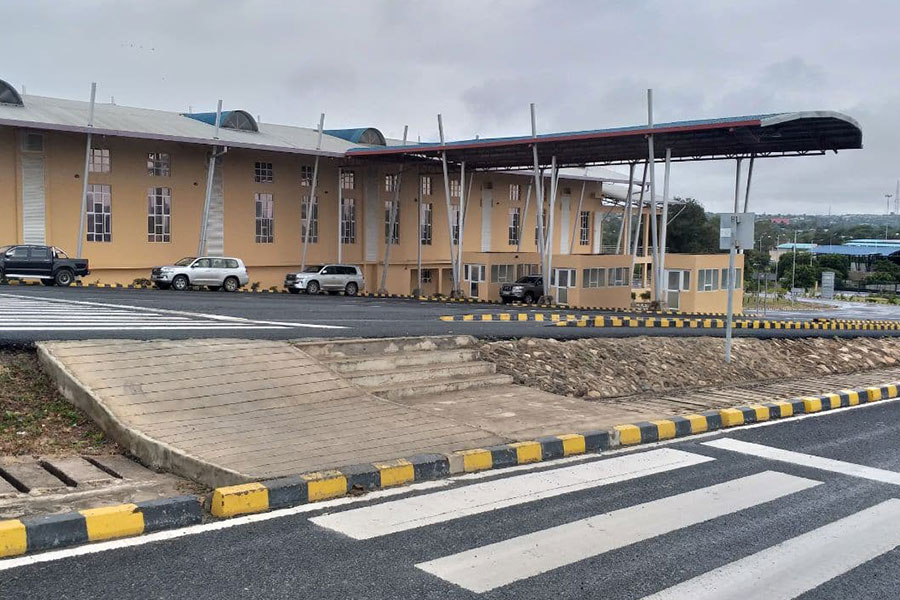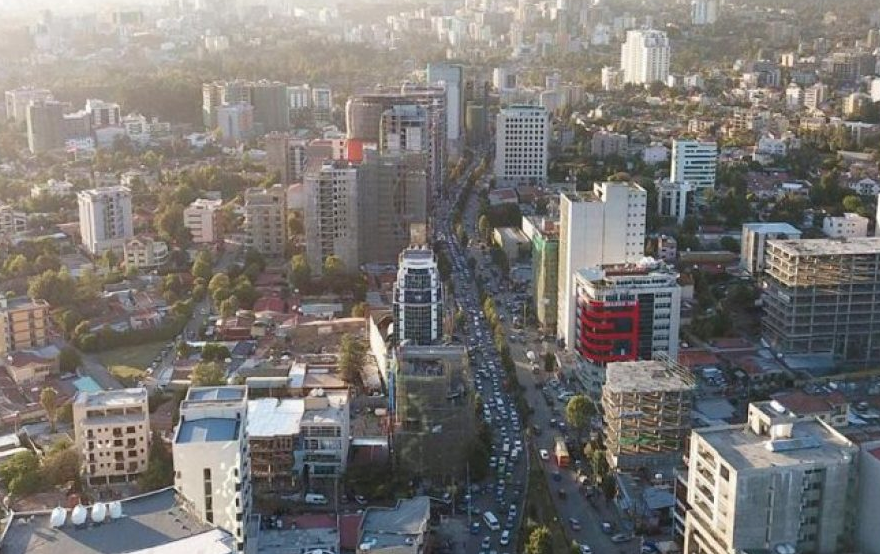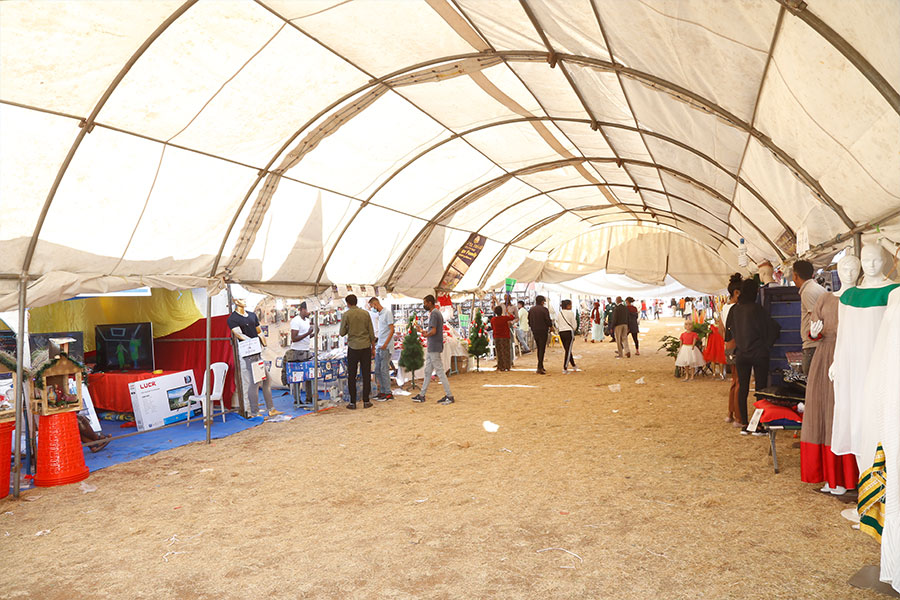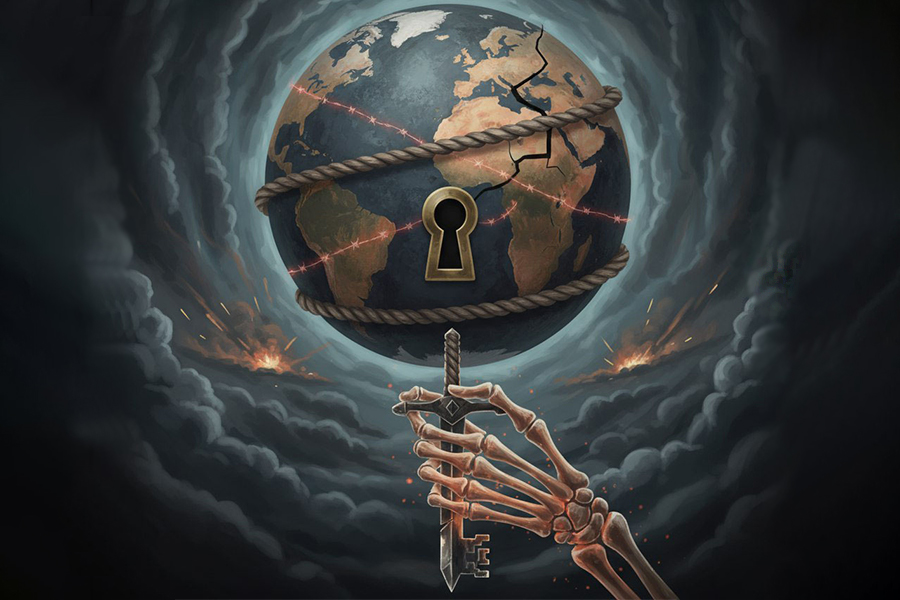
Commentaries | Sep 16,2023
Jun 1 , 2024
By Winnie Byanyima , Joseph E. Stiglitz
Earlier this year, Tedros A. Ghebreyesus (PhD), World Health Organization's (WHO) director general, warned that "History teaches us that the next pandemic is a matter of when, not if." He is right. That is why it is vital that the world's governments successfully conclude their work of negotiating an accord on pandemic prevention, preparedness, and response.
Negotiators were not able to meet the latest deadline for an agreement. They need more time but must also be mindful that time is running out. We believe that an accord can be agreed that protects the world, if governments internalise the lessons of the AIDS and COVID-19 pandemics. But some are proving slow to recognise this.
The draft pandemic accord opens with a bold and inspiring statement endorsing solidarity, equity, and human rights. These principles underpin effective prevention and response, and early proposed versions of the accord included binding commitments from governments to put them into practice. But, the negotiations have generated pressure to water down several of these commitments, to the extent that some proposed versions would not guarantee that the response to the next pandemic would be any stronger than the response to COVID-19.
So far, the negotiations have been marked by a divide between the Global North and the Global South – the same divide that impeded the COVID-19 response.
Low- and middle-income countries point out the need for binding commitments to ensure medical technologies are produced and distributed widely next time. But, they have faced opposition on this point from some wealthy countries, even though it is in everyone's interest to ensure equitable and universal access to the products – from diagnostic tools to vaccines – needed to beat pandemics.
Health products need not be scarce: geographically diversified production can help ensure ample supply. But, too often, after governments have poured public funding into pursuing life-saving medical breakthroughs, they have handed exclusive rights over the resulting vaccines and treatments to private pharmaceutical companies. The inevitable result is that doses are provided only to countries that can afford to pay high prices for them, leaving poorer countries struggling to secure vaccines, tests, and treatments on time.
This deadly scarcity is not a bug in the system; it is a defining feature of private monopolies.
World leaders were slow to recognise this during the AIDS pandemic. In the late 1990s and early 2000s, 12 million Africans died from AIDS while waiting for life-saving medicines that were widely available to people in the Global North. Then, the Global South started producing more affordable generic medicines, and the cost of treatment plummeted from well over 10,000 dollars per patient a year to well below 100 dollars. Now, three-quarters of people living with HIV are getting the treatment they need to live long and full lives.
If universal access to AIDS treatment is guaranteed, the world can eliminate AIDS as a public health threat by 2030. Beyond saving millions of lives, this would bolster global stability, health security, and economic growth, with high-income countries also benefiting.
One would have expected these hard-won lessons to shape the COVID-19 response. They did not. Instead, pharmaceutical companies were given vaccine monopolies, so doses were delivered to wealthy countries first, leaving poorer countries unable to secure supplies – with tragic results. A more equitable COVID-19 vaccine rollout could have saved 1.3 million lives in the first year alone. This does not include the massive indirect losses of life and health caused by the redirection of health resources toward COVID-19 cases.
Beyond the high human costs have been severe economic repercussions. According to one estimate, vaccine inequity cost the global economy 2.3 trillion dollars. Ultimately, countries in the Global North have been playing a negative-sum game: the increased profits for a few pharmaceutical companies – and a few billionaire pharmaceutical barons – are dwarfed by the losses for everyone else.
The pillars of effective pandemic prevention, preparedness, and response are well-known: relevant knowledge and technology must be shared openly, and vaccines, tests, and treatments must be produced widely. Sufficient funding needs to be provided at the national and international levels, and intellectual property barriers that prevent safe, capable manufacturers from joining the pandemic response must be removed.
Voluntary action is not enough. The United States and the European Union have recognised this and implemented selective measures to mandate the sharing of technology and know-how. The pandemic accord needs to take this further, with binding commitments for all countries to share relevant resources and knowledge openly during a pandemic. Without such commitments, the world would be unable to achieve the accord's objectives.
We cannot rely on the goodwill of pharmaceutical companies to ensure that global health is prioritised over profiteering. During the COVID-19 crisis, intense public pressure drove BioNTech and Moderna to pledge to launch operations in Africa. It was a minor concession from companies that, along with Pfizer, made 1,000 dollars per second by supplying vaccines to rich countries first. But even that proved to be too much for them: now that the news cycle has moved on, BioNTech has massively scaled back its plans for African production, and Moderna has shelved its plans entirely.
The lesson is clear: governments can ensure access to health products only by mandating it.
Having lived through two deadly pandemics – in which we, like so many others, watched friends and family suffer and die – it is unbearable to imagine a repeat of such devastation. The pandemic accord offers hope for a better, more equitable way forward. To succeed, leaders must match their lofty rhetoric with iron-clad guarantees that the response to the next pandemic will reflect what we learned from the last one.
PUBLISHED ON
Jun 01,2024 [ VOL
25 , NO
1257]

Commentaries | Sep 16,2023

Editorial | Mar 01,2024

Featured | Sep 10,2021

My Opinion | Oct 04,2025

Viewpoints | Jun 19,2021

Radar | Jun 14,2020

Viewpoints | Aug 03,2019

Featured | Sep 09,2019

Featured | Jan 02,2021

View From Arada | Oct 04,2025

Photo Gallery | 179769 Views | May 06,2019

Photo Gallery | 169967 Views | Apr 26,2019

Photo Gallery | 160929 Views | Oct 06,2021

My Opinion | 137203 Views | Aug 14,2021

Dec 22 , 2024 . By TIZITA SHEWAFERAW
Charged with transforming colossal state-owned enterprises into modern and competitiv...

Aug 18 , 2024 . By AKSAH ITALO
Although predictable Yonas Zerihun's job in the ride-hailing service is not immune to...

Jul 28 , 2024 . By TIZITA SHEWAFERAW
Unhabitual, perhaps too many, Samuel Gebreyohannes, 38, used to occasionally enjoy a couple of beers at breakfast. However, he recently swit...

Jul 13 , 2024 . By AKSAH ITALO
Investors who rely on tractors, trucks, and field vehicles for commuting, transporting commodities, and f...

Nov 1 , 2025
The National Bank of Ethiopia (NBE) issued a statement two weeks ago that appeared to...

Oct 25 , 2025
The regulatory machinery is on overdrive. In only two years, no fewer than 35 new pro...

Oct 18 , 2025
The political establishment, notably the ruling party and its top brass, has become p...

Oct 11 , 2025
Ladislas Farago, a roving Associated Press (AP) correspondent, arrived in Ethiopia in...

Nov 2 , 2025
The National Bank of Ethiopia (NBE) has scrapped the credit-growth ceiling that had s...

Nov 2 , 2025 . By SURAFEL MULUGETA
The burgeoning data mining industry is struggling with mounting concerns following th...

Nov 2 , 2025 . By YITBAREK GETACHEW
Berhan Bank has chosen a different route in its pursuit of a new headquarters, opting for a transitional building instea...

Nov 2 , 2025 . By BEZAWIT HULUAGER
Nib International Bank S.C. has found itself at the epicentre of a severe governance...